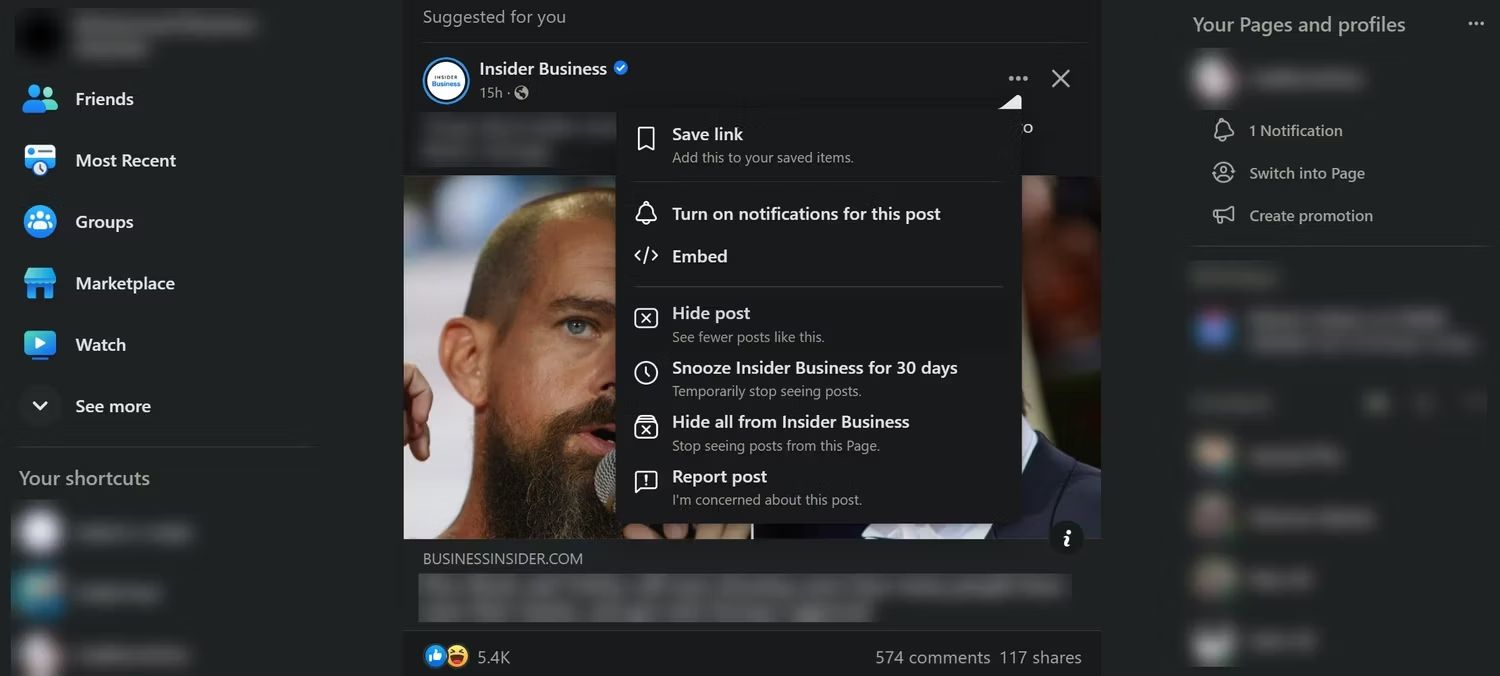Key Takeaways
- Scam ads are rampant on Facebook and other social media platforms.
- Scammers use fake celebrity endorsements and AI to create convincing fraudulent ads.
- Facebook’s lax ad review system allows scammers to easily target older users, with 58% of crypto ads being scams.
Bad actors have always been a prevalent issue on the internet. You’d think that “Big Tech” has created advanced systems to catch and stop fraudsters before they had a chance to swindle money, but it turns out that things are actually taking a turn for the worse with sophisticated scam ads.
The Ads May Be Real, but What They Promise Certainly Isn’t
Most ads that I get on Facebook are actually pretty good for the most part. I’m a freelancer, so I occasionally get served ads for products that promise to simplify taxes. I also get a bunch of ads for tech products, games, and food. However, it doesn’t help things when half of the ads I get are literal scams that you typically only encounter on shady websites.
While writing this article, I got served an ad to join the beta program for Grand Theft Auto VI, which doesn’t exist. It’s a surprisingly common scam, and being aware of that, I clicked on the ad just to see what would happen, and it directly downloaded a virus disguised as a RAR file containing the game. It’s shocking how easy Facebook has made it for scammers to get potential ransomware on your device.
Perhaps no scam ad is worse than the ones involving celebrities. These scam ads use the likeness of famous actors and singers to promote their scam services and products. Unassuming individuals who don’t know how to recognize scams click on these ads because they trust and admire these public figures and genuinely believe that Facebook would never serve an unsafe ad.
I encountered an ad for a fake website that mimicked a real newspaper article featuring a local actor supposedly promoting a crypto exchange. It was a lengthy article with screenshots from a real interview, several hyperlinks to the exchange, and a bunch of fake comments at the end of the article.
These types of celebrity scams have been an issue for years, but they’re getting worse with AI. While the aforementioned scam ad didn’t feature a deepfake, I’m sure that even more elaborate scams do. Since deepfakes now look incredibly convincing, it’s no surprise that people unfortunately fall for these scams.
This Appears to Be a Widespread Facebook Problem
The reason why scams are so prevalent is that Meta made it incredibly easy for anyone to get ads featured on their platforms. Almost anyone can pay for ads and get them up and running in as little as 24 hours after being (usually automatically) reviewed. Since Facebook skews older, it has a large proportion of older people that predatory individuals love to target.
Facebook’s automated ad review and monitoring system also gets trained by manual reviewers, but it obviously sucks at its job. The Australian Competition and Consumer Commission (ACCC) found that 58% of all crypto ads on Facebook are scams. AI images are also rampant, but at least those are largely limited to spreading misinformation and trolling unsuspecting grandparents.
I sincerely hope that Meta will take proactive steps to improve their ad review systems rather than wait to be compelled by a court order to do so. An automated system should only be used after it has sufficient training to catch 95–99% of scams, so Meta’s system obviously isn’t ready yet.
Until Meta can achieve a high success rate, it should take some of that money made from ads and pay human reviewers, but since scammers actually give money to Meta for ad placements, the company doesn’t have a financial incentive to do anything about the scams.
To be fair to Meta, other platforms have also turned into a breeding ground for sophisticated scams powered by AI. I can’t even open YouTube without being served a couple of sponsored videos about cryptocurrency and NFT investment schemes (or outright scams) that promise to get you rich in just a month.
What to Watch Out For
To protect yourself and your loved ones from these rampant scam ads, there are some steps you can take. For starters, take anything sponsored (and unsponsored) on social media with a massive dose of skepticism. If you encounter an ad that’s obviously a scam, report it so that Meta can take action.
Since advanced generative AI is so good now, you can’t trust any images or videos, especially when they involve celebrity endorsements and crypto or NFT. If an ad you clicked on downloads a file onto your device, don’t open it; delete it immediately. Also, if something sounds too good to be true, it almost always is.
Ads that promote purchasable products and services often require you to give credit card information—this applies to both real and fake offers. Before you give out such sensitive information, ensure that you’re on a legitimate website by checking if it’s the correct URL.
Always be cautious of fraudsters when you go online. Just because a social media platform is mostly safe, it can still feature dangerous sponsored content and even direct download links to malware. Stay safe, and don’t trust everything you see!






